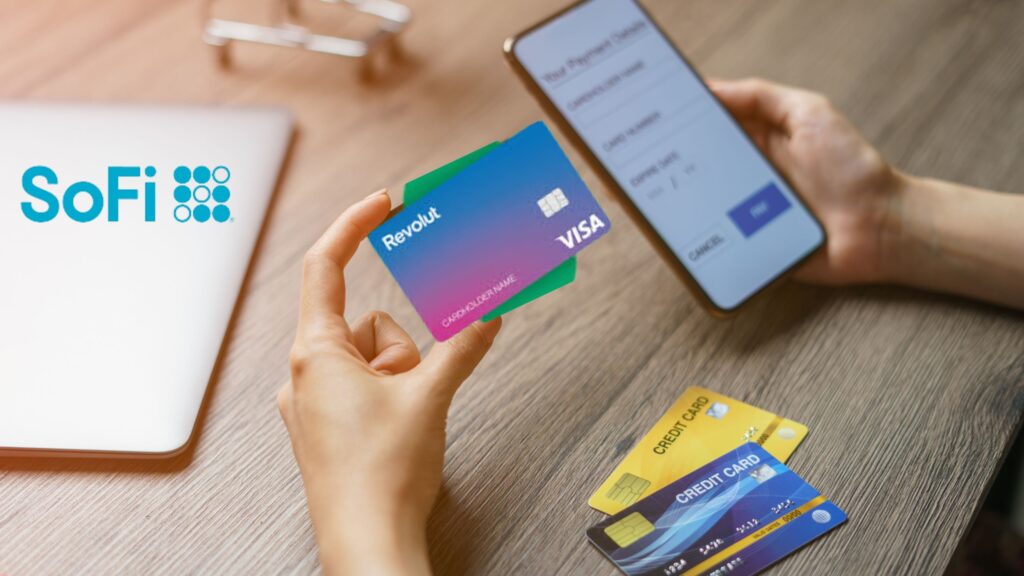What is Online Banking?
Today, practically all banks and credit unions offer online access with bill payment, cash transfers and other services. Every major bank has its own app, too. Some of the online features banks offer are incredibly slick and convenient, such as remote deposit capture, where you can take a picture of an endorsed check with your smartphone and move it to your account.
An online bank offers the same types of products and services as a traditional bank – it just doesn’t have physical bank branches to visit and bank tellers to interact with. With this lower overhead, online banks typically offer much higher interest rates on deposit accounts than traditional banks.
Can You Open a Bank Account Online?
Yes! Opening a bank account online is a quick and hassle-free process. Follow these simple steps to get started:
1. Visit the Bank’s Website
Go to the official website of your chosen bank and look for the “Open an Account” or “Get Started” button.
2. Gather Required Documents
You’ll need the following:
✔️ Social Security Number (SSN)
✔️ Valid Government-Issued ID (Driver’s License or Passport)
✔️ U.S. Residential Address (No P.O. Boxes)
✔️ Proof of U.S. Citizenship or Resident Alien Status
3. Create an Application Login
Set up a secure username and password to access your account.
4. Choose the Right Account Type
Decide if you want a checking, savings, or joint account. If it’s a joint account, the other person will need to provide the same documentation.
5. Complete the Online Application
Fill in the required details, review, and submit your application.
6. Fund Your New Account
You can deposit money using:
💳 Debit Card
🏦 Bank Transfer (Routing & Account Number)
Once your application is approved, you’ll receive account details and can start banking online immediately!
U.S. News’ Best Online Banks
Top online banks are transforming the financial landscape with seamless, tech-driven solutions. By eliminating traditional barriers, they offer faster transactions, higher savings yields, and AI-powered financial tools. With secure, user-friendly platforms, these banks redefine convenience, accessibility, and personalization in modern banking.
Revolut
- Revenue: £850m (US$1.06bn) FY2022
- Employees: 7,500
- CEO: Nikolay Storonsky
- Founded: 2015
Top of our list of leading digital banks is Revolut. Founded in 2015 by Nikolay Storonsky and Vlad Yatsenko, the neobank has experienced rapid growth, today boasting a user base of 35 million people and 500,000 business clients. With a mission to simplify finances for all, Revolut’s services include currency exchange accounts, debit cards, stock trading, virtual cards and cryptocurrency trading. The bank handles up to 250 million transactions per month. On a mission to deliver one of the UK’s first financial ‘super apps’, Revolut has made a string of recent announcements on its path to go beyond any of the financial services offerings currently seen on the market. Announcing plans to offer mobile phone plans, Revolut has scaled its partnerships with the likes of Sabre – to propel B2B payment processes for travel agencies – and launched a new AI fraud prevention tool to scale its cybersecurity efforts.
Nubank
- Revenue: US$45bn FY2023
- Employees: 6,000
- CEO: David Velez
- Founded: 2013
Nubank is the leading digital banking option in Latam. Founded by Cristina Junqueira, who leads the bank’s Brazilian arm, and David Vélez, CEO of Nubank in Colombia, Nubank has evolved to challenge traditional incumbents like Itaú. Leveraging a consumer-first approach, Nubank has a customer base exceeding 70 million and continues to leverage cutting-edge technologies like machine learning to drive innovative business practices and deliver new products and services to its personal and business customers. A digital-only bank, Nubank provides its services via its comprehensive app, which aims to deliver financial solutions that are straightforward, intuitive and, most importantly, human-centric. Nubank continues to innovate too, recently partnering with UK fintech Wise as part of its bid to enter the global accounts market.
SoFi
- Revenue: US$2.12bn FY2023
- Employees: 4,400
- CEO: Anthony Noto
- Founded: 2011
San Francisco’s leading digital bank, SoFi, harnesses technology to deliver a host of competitive financial offerings, from loans and credit options to investment services and mortgages. An online-only bank, SoFi achieved initial growth as an alumni-funded lending model, connecting students and recent graduates with investors and University alumni, before transitioning to a non-traditional underwriting model prioritising lending to responsible borrowers. With over eight million members today, SoFi has cultivated a robust reward programme for its customers, offering complementary benefits and round-the-clock customer support.
N26
- Revenue: €236 million (US$254.3m) FY2022
- Employees: 1,500
- CEO: Valentin Stalf
- Founded: 2013
N26 is the leading neobank in Germany. Founded in 2013 by Valentin Stalf and Maximilian Tayenthal, the bank holds a comprehensive European banking licence and now operates in 25 diverse markets, including Barcelona, Madrid, Milan, Vienna and Paris. It also operates outside of Europe with markets in Latam, including the Brazilian city of São Paulo. N26 has expanded its services significantly in recent times, and now operates N26 crypto, offering trading options on up to 200 coins. The bank has also reaffirmed its commitment to security, leveraging fingerprint identification and advanced 3D Secure technology so customers can make purchases confidently.
Monzo
- Revenue: £355.6m (US$444.93m) Year ended February 2023
- Employees: 2,500
- CEO: TS Anil
- Founded: 2015
Another UK-based challenger bank, Monzo is among the most successful globally. Growing from a mobile application and prepaid debit card service in 2015, today Monzo has over nine million customers nationwide. The neobank has introduced a series of new products and services in recent times, including its buy now, pay later (BNPL) product Monzo Flex, which was introduced to support consumers in managing expenses during the cost of living crisis. Monzo has also recently redesigned its mobile app and homepage, making navigation even easier for customers, and has recently generated an additional £150m (US$187m) in funding as it looks to enter the US market.
Starling Bank
- Revenue: £453m (US$566m) Year to March 2023
- Employees: 2,700
- CEO: Raman Bhatia
- Founded: 2014
Founder of the UK’s first female-founded bank, Anne Boden, has propelled Starling Bank to unprecedented heights since its establishment in 2014. Although she has since taken a backseat, with Starling now led by newly-appointed Raman Bhatia, the neobank continues to grow its client base rapidly, with 4.1 million accounts opened and over US$300m in funding generated since its inception. Delivering personal current accounts, joint accounts, business accounts and Euro accounts, Starling has maintained its branchless model.
Atom Bank
- Net-operating income: £65.84m (US$82.43m) FY2023
- Employees: 500
- CEO: Mark Mullen
- Founded: 2013
The UK’s first digital-only bank, Atom Bank stands out for its mobile-centric operating model. Based in Durham, England, the bank has amassed over US$700m in funding since its founding with backing from Spanish banking giant BBVA. The bank has expanded its services in recent times to support small businesses with secured tailored loans while continuing its support for everyday customers with competitive mortgage and savings products. Founded by Metro Bank Co-founder Anthony Thomson and First Direct CEO Mark Mullen, Atom Bank’s launch heralded a new age in banking with digital players the challengers to established organisations.
Current
- Revenue: US$50.7m FY2023 *estimate
- Employees: 51-200
- CEO: Stuart Sopp
- Founded: 2015
Current is the New York-based digital bank delivering mobile banking services to consumers in partnership with Choice Financial Group. With over four million members, Current offers a range of products and services from savings rewards to crypto trading options and direct deposit capabilities. Leveraging a digital-only model, Current is committed to meeting the financial needs of Americans looking to build brighter futures by leveraging innovative, cutting-edge technologies. In an increasingly digitised and complex world, Current endeavours to offer inspiring products to its customers to give them better management over their finances.
Varo Bank
- Revenue: US$101m FY2022
- Employees: 500-1000
- CEO: Colin Walsh
- Founded: 2015
Based in San Francisco, Varo Bank is a leading digital bank on the US West Coast offering personalised banking services with financial inclusion at its heart. Combining a unique employee base of seasoned financial veterans with technologists, Varo Bank has piqued the interest of numerous venture capitalists since its 2015 establishment, including Gallatin Point Capital, Harbourvest Partners, Lone Pine Capital, Progressive Insurance, Russell Westbrook Enterprises, The Rise Fund and Warburg Pincus. The bank prides itself on delivering rapid access to cash, high-yield savings options and automated savings tools.
Ally Bank
- Revenue: US$15.97bn FY2023 (Ally Financial)
- Employees: 11,000
- CEO: Michael G. Rhodes
- Founded: 2009
Headquartered in Detroit, Michigan, Ally Bank provides a wide range of financial services including online banking, car finance, corporate lending, mortgage loans and vehicle insurance. Offering early direct deposit options for its customers, Ally has 11 million customers today, managing US$193bn in total assets and sits as one of the US’ Top 25 financial holding companies. With the mantra ‘People come first’, Ally champions financial inclusion, DEI and delivering strong social impact.
Are Online Banks Safe?
Online banks are insured by the Federal Deposit Insurance Corp., just like brick-and-mortar banks. With online credit union accounts, the National Credit Union Administration serves a function similar to the FDIC.
Are online banks more vulnerable to hacking?
An online bank is vulnerable to hacking – just like any other business that operates online.It’s important to verify your online bank has robust internet security measures, has its accounts FDIC or NCUA insured, and has never made headlines for careless data mishaps.
How do you protect yourself while banking online?
- Avoid phishing scams. If your bank is asking you to reset your online password, be careful. Check the sender’s email address and when in doubt, give the bank a call.
- Use biometrics whenever possible.Some mobile banking apps offer biometric authentication, which allows you to confirm your identity using a unique physical trait, such as your voice, thumbprint or facial scan.
- Keep an eye out for alerts. Banks have sophisticated fraud-monitoring services. Sign up to receive alerts about unusual activity on your account.
- Protect yourself while banking in public. Always protect your password information when you use your mobile banking app in public places. Treat mobile banking on the go as you would any private phone call. Avoid conducting banking business when you are on public Wi-Fi, especially if the network isn’t password protected.
Online Banking Features
“I think it is important to look for an account that offers no minimums, no fees and FDIC insurance,” says Kristian Finfrock, founder and financial advisor at Madison, Wisconsin-based Retirement Income Strategies.
Consider these nine features when looking for the online bank that’s right for you:
- Ease of opening accounts.Provided you have the necessary documents handy, you should be able to open an online account in minutes.
- Customer service availability. Zero branches should never equal zero customer service. Check for easy phone access and extensive hours for live chat and call-in help. Having an online banker you can pick is also a bonus.
- High customer service ratings. You can find customer service ratings from the Better Business Bureau or Trustpilot, but note that smaller institutions might have fewer reviews.
- Zero fees. The best online banks will scrap fees for monthly service charges and minimum account balances and reimburse ATM fees.
- Ease of making deposits. Taking a front-and-back picture of a check with your smartphone and depositing it should take no more than two minutes. You’ll also want nearby ATMs that can accept cash deposits.
- Higher interest rates on checking and savings. In general, online banks will beat brick-and-mortar institutions. But among online and mobile banks themselves, there’s healthy competition for your business. Shop the rates to get your best deal.
- Lower interest on loans and credit-related products. Online banks often are quite competitive with traditional banks and credit unions, but be sure to shop around.
- Variety of products. Online banks should give you options beyond checking and savings accounts. See whether the bank offers mortgages, home improvement loans, auto loans, credit cards and more.
- Peace of mind. There’s no point in joining forces with an online bank if you’ll always worry about the safety of your money. Remember that all online banks and banking sites are vulnerable to hackers, but some do a better job keeping you abreast of their security measures than others.
FAQs
1. What are the best online banks with high-interest savings accounts?
Many online banks offer high-yield savings accounts with competitive interest rates, often higher than traditional banks.
Are online banks safe to use?
Yes, most online banks are FDIC-insured, ensuring deposits are protected up to $250,000 per account. They also use encryption and multi-factor authentication for security.
Do online banks charge monthly fees?
Many online banks offer fee-free checking and savings accounts with no monthly maintenance fees, overdraft fees, or minimum balance requirements.
How do I deposit cash into an online bank account?
Cash deposits can be made through partner ATMs, third-party retailers, or by transferring funds from another bank account.
Can I get a loan or credit card from an online bank?
Yes, many online banks provide personal loans, auto loans, and credit cards with competitive rates and lower fees compared to traditional banks.
What is the difference between an online bank and a traditional bank?
Online banks operate without physical branches, offering lower fees and higher interest rates, while traditional banks provide in-person services.
How long does it take to transfer money between online banks?
Transfers usually take 1-3 business days, though some online banks offer instant transfers for an additional fee.
Do online banks offer customer support?
Yes, online banks provide 24/7 customer support via chat, phone, or email, but may lack in-person assistance.










